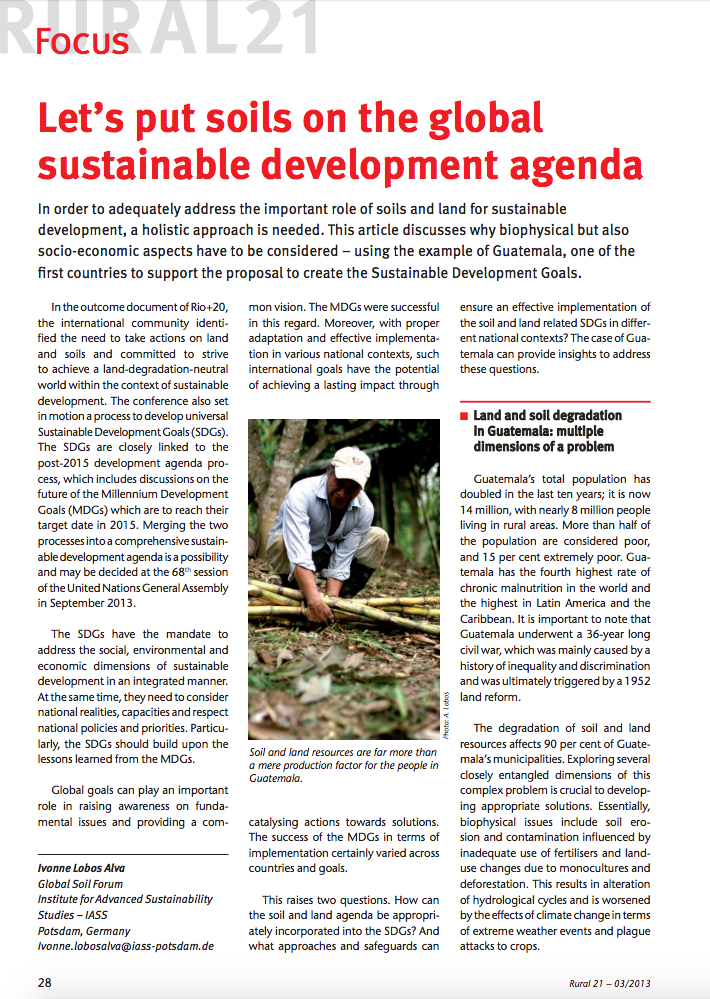DLG-Verlag was founded in 1952 as a subsidiary of DLG e.V. (Deutsche Landwirtschafts-Gesellschaft - German Agricultural Society) with its headquarter in Frankfurt/ Germany. The publishing company provides expertise for the agricultural and food sector.
With its subsidiaries Max-Eyth-Verlag and DLG-Agrofood Medien GmbH the DLG-Verlag offers books and magazines, as well as catalogs of the DLG's international DLG exhibitions.
Members:
Resources
Displaying 116 - 120 of 316Let’s put soils on the global sustainable development agenda
In order to adequately address the important role of soils and land for sustainable development, a holistic approach is needed. This article discusses why biophysical but also socio-economic aspects have to be considered – using the example of Guatemala, one of the first countries to support the proposal to create the Sustainable Development Goals.
Experience with the System of Rice Intensification in Timor Leste
The System of Rice Intensification (SRI) is a natural resource management technology that has supporters and opponents. Evidence of the technology’s impacts is mixed. Recent research results from Timor Leste suggest that SRI can improve yields and incomes of smallholder farmers when proper extension systems are in place.
What can conservation agriculture achieve?
Conservation agriculture (CA) is an important form of sustainable land management, provided that the three basic principles - no tillage, permanent soil cover, diverse crop rotation or intercropping - are always observed.
Irrigation and markets – a fertile combination for poverty reduction
In the early 1980s, Germany’s KfW Development Bank financed the first irrigation project around Mount Kenya. A reliable supply of water was expected to enable farmers to achieve stable yields. In this way, they could not only safeguard their own food supply but also supply new markets and earn themselves an income. The following article takes stock of progress and benefits.
Moving towards resilient farming in northern Ethiopia
Improving watershed conservation and household food security has been one of the major development challenges in the semi-arid areas of northern Ethiopia. The initial survey by ILRI’s Improving Productivity and Marketing Success project has revealed that physical conservation measures alone do not result in higher farmers’ income. However, the introduction of market-oriented commodity development such as beekeeping, sheep-fattening, and high value crops resulted in farmers’ income rising fivefold from 2005 to 2009.



